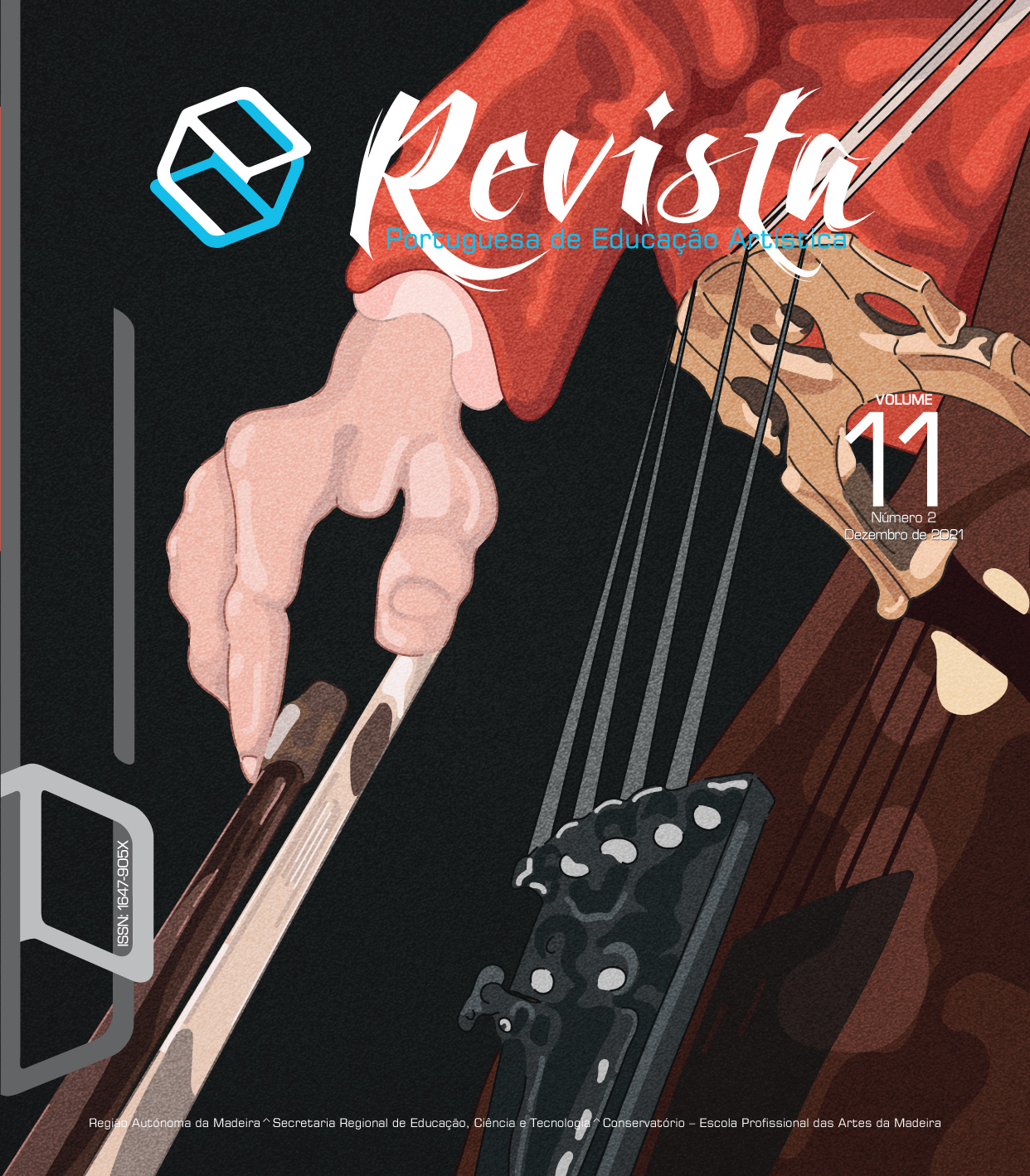Supervised Professional Internship: Perception of the Theater Intern
DOI:
https://doi.org/10.34639/rpea.v11i2.188Keywords:
Scales; Self-efficacy; Musicians; Students; PerformanceAbstract
Many experts mention that self-efficacy is reflected in the quality of performance and learning. Low levels of selfefficacy can result in depressive feelings, low self-esteem, pessimistic thoughts, and anxiety. Good levels of self-efficacy favor learning, performance, improve motivation, resilience and health. This study aimed to build and validate a scale, to analyse self-efficacy and self-efficacy sources, that can influence the beliefs of classical music students. Through a Delphi panel, made up of five specialists, the scale items were elaborated. The resulting scale, composed of 22 items, was based on the general self-efficacy scale of Ralf Schwarzer and Matthias Jerusalem, and on Albert Bandura’s four sources of self-efficacy. The scale was administered to 150 participants, students from various instrument and singing classes, who
attend polytechnic and university education institutions in Portugal. Statistical analyzes showed good reliability. We can consider the elaborated scale a useful tool to assess the levels of self-efficacy and the self-efficay sources that influence the musicians’ beliefs.
Downloads
Published
Issue
Section
License
Copyright (c) 2022 Portuguese Journal of Artistic Education

This work is licensed under a Creative Commons Attribution-NonCommercial 4.0 International License.

The work Revista Portuguesa de Educação Artística (Portuguese Journal of Artistic Education) is certified under Licence-Creative Commons Attribution-NonCommercial 4.0 International (CC BY-NC 4.0).




